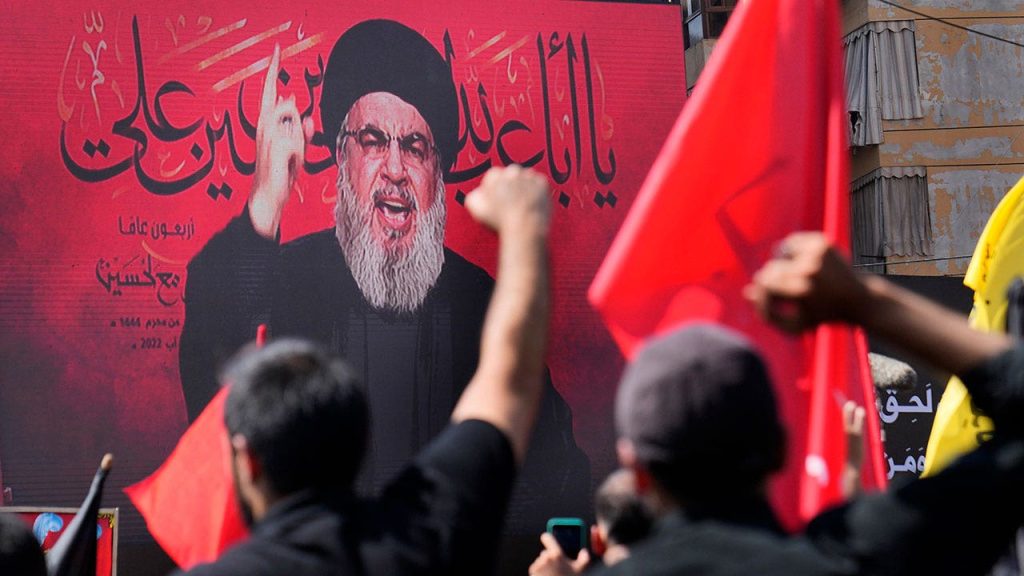The Israeli Defense Forces (IDF) confirmed the leader of the Hezbollah terrorist organization, Hassan Nasrallah, died in its strike against the group’s headquarters in Lebanon. This operation was carried out in response to threats against Israeli citizens, with IDF Chief of the General Staff, Ltf. Herzi Halevi, stating that they will continue to take action against those who endanger Israel. Nasrallah, along with other Hezbollah commanders, was targeted in the strike that resulted in multiple casualties and injuries. The IDF emphasized that Nasrallah was responsible for the deaths of many Israelis and the planning of numerous terrorist activities worldwide.
Israeli Prime Minister Benjamin Netanyahu, who was attending the United Nations General Assembly, had to cut his trip short following the strike on Nasrallah. Netanyahu warned Hezbollah about Israel’s right to defend itself, emphasizing the need to remove threats and ensure the safety of Israeli citizens. The United States confirmed it was not involved in the Israeli operation, and there was no advance warning given. The IDF continued to target Hezbollah infrastructure sites following Nasrallah’s death, striking over 140 terror targets to degrade the organization’s capabilities.
The elimination of Nasrallah was seen as a significant victory for Israel due to his close ties to Tehran. Nasrallah had taken on a senior strategist role for Iran’s Supreme Leader following the death of Qassem Soleimani. This event was considered a strategic game-changer not only for Hezbollah, but also for Lebanon, Syria, and Iran. The Foundation for Defense of Democracies highlighted that the Iranian regime, particularly the IRGC, could now have increased influence in the region, and any potential attacks by Iran could lead to a shift in Israel’s approach towards the country.
The IDF revealed that Nasrallah’s death was a result of precise intelligence and targeted airstrikes on Hezbollah’s headquarters in southern Beirut. The strike was conducted while Hezbollah’s senior chain of command was operating from the underground headquarters, where they were planning and executing terrorist activities against Israel. Nasrallah was described as Hezbollah’s central decision-maker and strategic leader. Israeli officials made it clear that they would not tolerate threats to their citizens and would continue to dismantle Hezbollah’s terrorist infrastructure in the region.
Secretary of Defense Lloyd Austin confirmed that the United States was not involved in the operation against Nasrallah, and there was no prior warning provided by Israel. Netanyahu emphasized Israel’s right to defend itself against threats and vowed to remove any danger posed to its citizens. The IDF’s continued strikes on Hezbollah targets aimed to degrade the organization’s capabilities further. Nasrallah’s death was expected to have far-reaching implications for the balance of power in the region, with potential consequences for Iran’s involvement in conflicts throughout the Middle East.
The IDF’s operation targeted Nasrallah and other Hezbollah commanders responsible for multiple attacks on Israelis and terrorist activities worldwide. The strike on Hezbollah’s headquarters signified Israel’s uncompromising stance against threats to its citizens. Israeli leadership, including Netanyahu, emphasized the need to defend the country and take decisive action against those who seek to harm Israeli civilians. The implications of Nasrallah’s death were seen as a game-changer in the region, potentially affecting the dynamics of conflicts involving Iran, Lebanon, and Syria. Israel’s continued efforts to dismantle Hezbollah’s infrastructure signified its commitment to ensuring the safety and security of its citizens.


